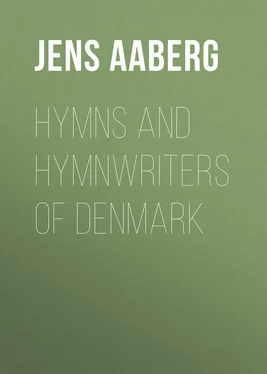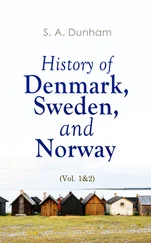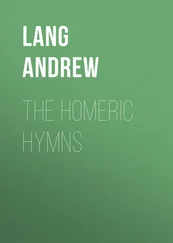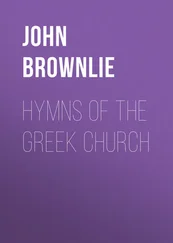Jens Aaberg - Hymns and Hymnwriters of Denmark
Здесь есть возможность читать онлайн «Jens Aaberg - Hymns and Hymnwriters of Denmark» — ознакомительный отрывок электронной книги совершенно бесплатно, а после прочтения отрывка купить полную версию. В некоторых случаях можно слушать аудио, скачать через торрент в формате fb2 и присутствует краткое содержание. Жанр: foreign_antique, foreign_prose, Историческая проза, на английском языке. Описание произведения, (предисловие) а так же отзывы посетителей доступны на портале библиотеки ЛибКат.
- Название:Hymns and Hymnwriters of Denmark
- Автор:
- Жанр:
- Год:неизвестен
- ISBN:нет данных
- Рейтинг книги:3 / 5. Голосов: 1
-
Избранное:Добавить в избранное
- Отзывы:
-
Ваша оценка:
- 60
- 1
- 2
- 3
- 4
- 5
Hymns and Hymnwriters of Denmark: краткое содержание, описание и аннотация
Предлагаем к чтению аннотацию, описание, краткое содержание или предисловие (зависит от того, что написал сам автор книги «Hymns and Hymnwriters of Denmark»). Если вы не нашли необходимую информацию о книге — напишите в комментариях, мы постараемся отыскать её.
Hymns and Hymnwriters of Denmark — читать онлайн ознакомительный отрывок
Ниже представлен текст книги, разбитый по страницам. Система сохранения места последней прочитанной страницы, позволяет с удобством читать онлайн бесплатно книгу «Hymns and Hymnwriters of Denmark», без необходимости каждый раз заново искать на чём Вы остановились. Поставьте закладку, и сможете в любой момент перейти на страницу, на которой закончили чтение.
Интервал:
Закладка:
Sthen’s fame as a poet and hymnwriter rests mainly on two thin volumes of poetry. A Small Handbook, Containing Diverse Prayers and Songs Together with Some Rules for Life, Composed in Verse, which appeared in 1578, and A Small Wander Book, published in 1591. The books contain both a number of translations and some original poems. In some of the latter Sthen readopts the style of the old folk songs with their free metre, native imagery and characteristic refrain. His most successful compositions in this style are his fine morning and evening hymns, one of which is given below.
The gloomy night to morning yields,
So brightly the day is breaking;
The sun ascends over hills and fields,
And birds are with song awaking.
Lord, lend us Thy counsel and speed our days,
The light of Thy grace surround us.
Our grateful thanks to God ascend,
Whose mercy guarded our slumber.
May ever His peace our days attend
And shield us from troubles somber.
Lord, lend us Thy counsel and speed our days,
The light of Thy grace surround us.
Redeem us, Master, from death’s strong hand,
Thy grace from sin us deliver;
Enlighten us till with Thine we stand,
And make us Thy servants ever.
Lord, lend us Thy counsel and speed our days,
The light of Thy grace surround us.
Then shall with praise we seek repose
When day unto night hath yielded,
And safe in Thine arms our eyelids close
To rest by Thy mercy shielded.
Lord, lend us Thy counsel and speed our days,
The light of Thy grace surround us.
Sthen’s hymns all breathe a meek and lowly spirit. They express in the simplest words the faith, hope and fears of a humble, earnest Christian. The following still beloved hymn thus presents a vivid picture of the meek and prayerful spirit of its author.
O Lord, my heart is turning
To Thee with ceaseless yearning
And praying for Thy grace.
Thou art my sole reliance
Against my foes’ defiance;
Be Thou my stay in every place.
I offer a confession
Of my severe transgression;
In me is nothing good.
But, Lord, Thou wilt not leave me
And, like the world, deceive me;
Thou hast redeemed me with Thy blood.
Blest Lord of Life most holy,
Thou wilt the sinner lowly
Not leave in sin and death;
Thine anger wilt not sever
The child from Thee forever
That pleads with Thee for life and breath.
O Holy Spirit, guide me!
With wisdom true provide me;
Help me my cross to bear.
Uphold me in my calling
And, when the night is falling,
Grant me Thy heavenly home to share.
Most widely known of all Sthen’s hymns is his beloved “Lord Jesus Christ, My Savior Blest”. In its unabbreviated form this hymn contains eight stanzas of which the initial letters spell the words: “Hans Anno”; and it has become known therefore as “Sthen’s Name Hymn”. The method of thus affixing one’s name to a song was frequently practiced by authors for the purpose of impressing people with their erudition. The meek and anxious spirit that pervades this hymn makes it unlikely, however, that Sthen would have employed his undoubted skill as a poet for such a purpose. The hymn is thought to have been written at Malmø at the time its author encountered his most severe trials there. And its intimate personal note makes it likely that he thus ineradicably affixed his name to his hymn in order to indicate its connection with his own faith and experience. “Sthen’s Name Hymn” thus should be placed among the numerous great hymns of the church that have been born out of the sorrows and travails of their authors’ believing but anxious hearts. The translation given below is from the abbreviated text now used in all Danish hymnals.
Lord Jesus Christ,
My Savior blest,
My refuge and salvation,
I trust in Thee,
Abide with me,
Thy word shall be
My shield and consolation.
I will confide,
Whate’er betide,
In Thy compassion tender.
When grief and stress
My heart oppress,
Thou wilt redress
And constant solace render.
When grief befalls
And woe appalls
Thy loving care enfolds me.
I have no fear
When Thou art near,
My Savior dear;
Thy saving hand upholds me.
Lord, I will be
Alway with Thee
Wherever Thou wilt have me.
Do Thou control
My heart and soul
And make me whole;
Thy grace alone can save me.
Yea, help us, Lord,
With one accord
To love and serve Thee solely,
That henceforth we
May dwell with Thee
Most happily
And see Thy presence holy.
With Sthen the fervid spirit of the Reformation period appears to have spent itself. The following century added nothing to Danish hymnody. Anders Chrestensen Arrebo, Bishop at Tronhjem, and an ardent lover and advocate of a richer cultivation of the Danish language and literature, published a versification of the Psalms of David and a few hymns in 1623. But the Danish church never became a psalm singing church, and his hymns have disappeared. Hans Thomisson’s hymnal continued to be printed with occasional additions of new material, most of which possessed no permanent value. But the old hymns entered into the very heart and spirit of the people and held their affection so firmly that even Kingo lost much of his popularity when he attempted to revise them and remove some of their worst poetical and linguistic defects. They were no longer imprinted merely on the pages of a book but in the very heart and affection of a nation.
Thomas Kingo, the Easter Poet of Denmark
Chapter Three
Kingo’s Childhood and Youth
Thomas Kingo, the first of the great Danish hymnwriters, grew forth as a root out of dry ground. There was nothing in the religious and secular life of the times to foreshadow the appearance of one of the great hymnwriters, not only of Denmark but of the world.
The latter part of the 16th and the first half of the 17th centuries mark a rather barren period in the religious and cultural life of Denmark. The spiritual ferment of the Reformation had subsided into a staid and uniform Lutheran orthodoxy. Jesper Brochman, a bishop of Sjælland and the most famous theologian of that age, praised king Christian IV for “the zeal with which from the beginning of his reign he had exerted himself to make all his subjects think and talk alike about divine things”. That the foremost leader of the church thus should recommend an effort to impose uniformity upon the church by governmental action proves to what extent church life had become stagnant. Nor did such secular culture as there was present a better picture. The Reformation had uprooted much of the cultural life that had grown up during the long period of Catholic supremacy, but had produced no adequate substitute. Even the once refreshing springs of the folk-sings had dried up. Writers were laboriously endeavoring to master the newer and more artistic forms of poetry introduced from other countries, but when the forms had been achieved the spirit had often fled, leaving only an empty shell. Of all that was written during these years only one song of any consequence, “Denmark’s Lovely Fields and Meadows”, has survived.
Against this bleak background the work of Kingo stands out as an amazing achievement. Leaping all the impediments of an undeveloped language and an equally undeveloped form, Danish poetry by one miraculous sweep attained a perfection which later ages have scarcely surpassed.
Читать дальшеИнтервал:
Закладка:
Похожие книги на «Hymns and Hymnwriters of Denmark»
Представляем Вашему вниманию похожие книги на «Hymns and Hymnwriters of Denmark» списком для выбора. Мы отобрали схожую по названию и смыслу литературу в надежде предоставить читателям больше вариантов отыскать новые, интересные, ещё непрочитанные произведения.
Обсуждение, отзывы о книге «Hymns and Hymnwriters of Denmark» и просто собственные мнения читателей. Оставьте ваши комментарии, напишите, что Вы думаете о произведении, его смысле или главных героях. Укажите что конкретно понравилось, а что нет, и почему Вы так считаете.












